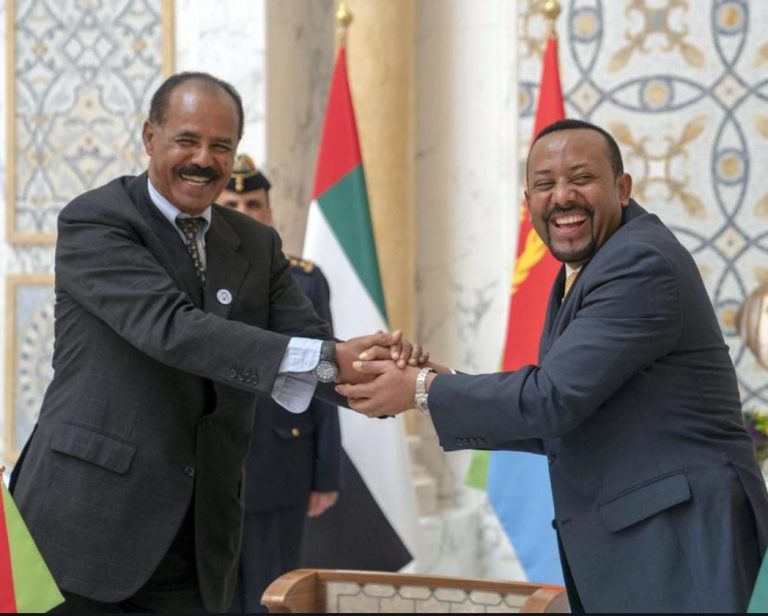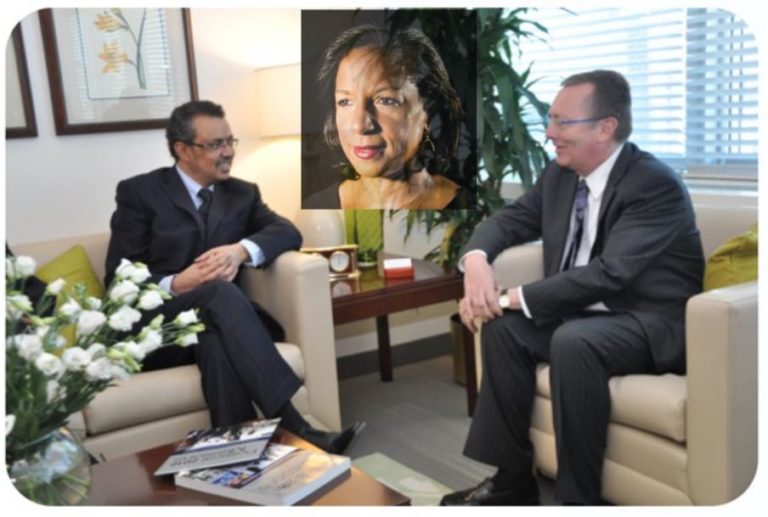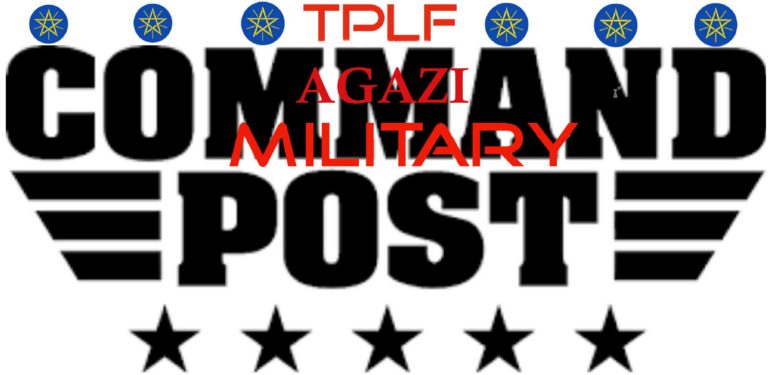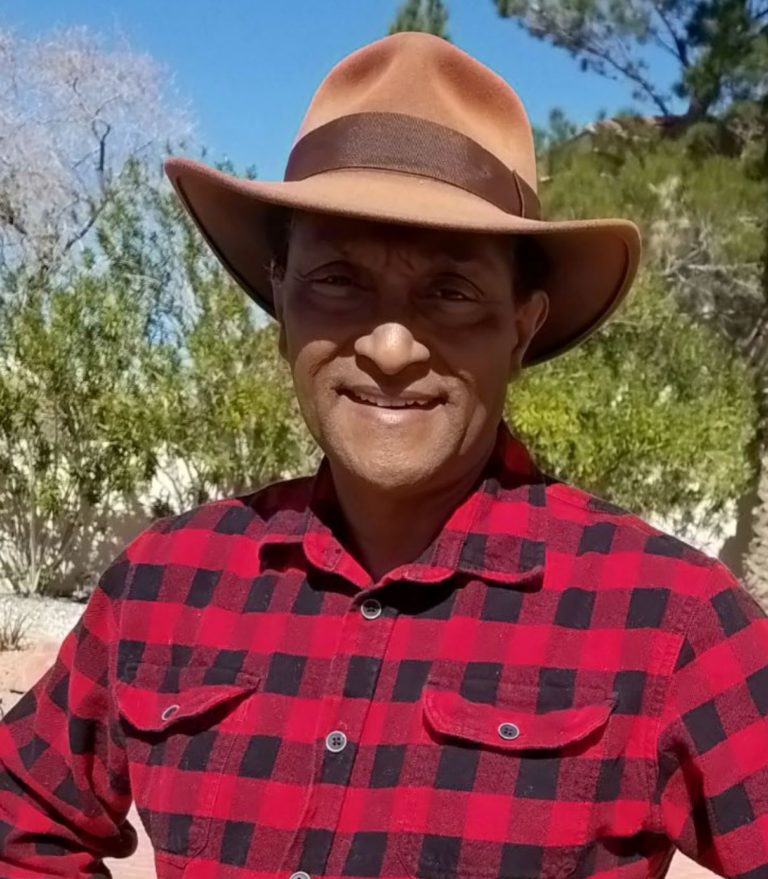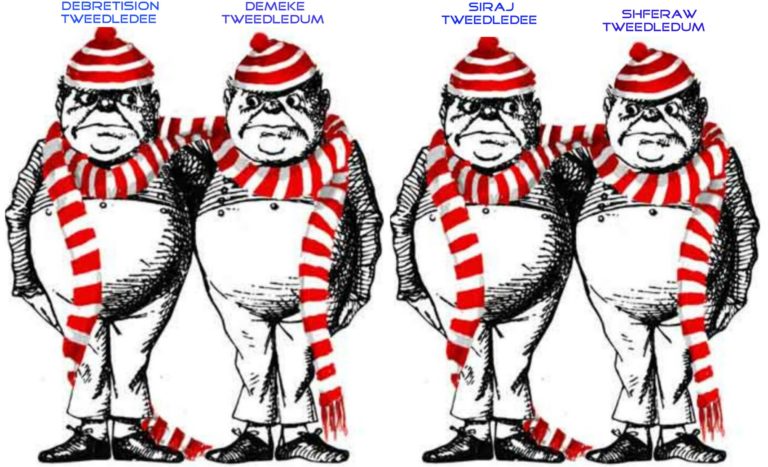Ethiopia: Grab This!
Editorial
Grab this!
Ethiomedia | March 31, 2008
[Originally appeared in Ethiomedia]
http://www.ethiomedia.com/abai/grab_this.html
Amb. Samuel “Oh! what a tangled web we weave, when first we practice to deceive!” Such was the recent interview given to WAMU radio host Kojo Nnamdi by Meles Zenawi’s Ambassador to the U.S., Samuel Assefa. After some chit-chat about Ethiopia’s contribution to the rarified world of gourmet coffee, it was time for Samuel to face the music. A caller asked:
“Why is there so much repression against the Oromos? Why is there no political freedom (and) human rights (are) more severely so in the Oromo areas, you know, if you could answer this question for me? Is there going to be free elections in those areas or is it going to be a hand picked representatives of the government, the minority government in the capital?”
Ambassador Samuel swiftly intellectualized the caller’s question, and tried to neutralize its acid truth with characteristic diplomatic obfuscation, claptrap, misdirection and gobbledygook:
“It is really difficult to answer to such sweeping allegations. I mean if I say, um, if you are asking me whether there are any violations anywhere in the country, I’d say I’d be surprised if there weren’t and I’d be surprised if there weren’t not only in my country, in any country. And if specifics are provided, one can always engage in the specifics. Um, what is being denied is that we have here are patterns because patterns suggest design, design suggests intentionality and a policy and a conscious effort to pursue such a strategy, and that is what is being denied. But it very difficult to attend these issues if one is just saying why are there no human rights period. I have nothing to grab on here.” (Italics added.)
The Ambassador could “grab” the following “specifics” from the U.S. State Department Human Rights Report (March, 2008):
“On January 3, police shot and killed two students during a raid on Gue Secondary School, Gue town, Oromiya Region. Several other students were beaten and arrested. Some of the students were released, but others remained in detention at year’s end. Why aren’t the killers of these students arrested and put on trial?
“On January 5, police shot and killed Belachew Endale Bitew of Arbaminch town, Southern Nations, Nationalities and Peoples’ Region.” Why isn’t the officer who killed Belachew arrested and put on trial?
“There were no developments in the May 2006 shooting by police in Nazret, Oromiya Region of Alemu Tesfaye, Tariku Yakiso, and Mensur Musema.” Why aren’t the police officers who killed Alemu, Tariku and Mensur arrested and brought to trial?
In 2007, “four supporters of the opposition Oromo National Congress (ONC) were arrested in relation to the April 2006 blast in the central market in the town of Gedo, Oromiya Region that killed 15 persons and injured 37 others.” Why are these ONC supporters still in detention in violation of their right to a speedy trial?
“On July 11, small business owner Girma Tesfaye Ayana was arrested for allegedly possessing illegal weapons and has not been seen since. On July 18, Befekadu Bulti Merri, a professor at Jima University, Oromiya Region, was arrested on the same charge and his whereabouts also remained unknown.” Where are Girma and Befekadu?
“On September 13, police beat regional parliamentarian Wegayehu Dejene of Me-ea District, Oromiya Region, and his family members. Police began harassing the parliamentarian after a February 2006 regional council meeting. Wegayehu filed several complaints with local authorities, but no action had been taken by year’s end.” When will Wegayehu’s complaints be reviewed, and action taken to stop the harassment permanently?
“There were no developments in the July 2006 incident in which security forces detained and beat one regional parliamentarian from the Oromo Federal Democratic Movement (OFDM) and five from the ONC after their attendance in a court case.” What is the status of the investigation into the beating and detention of these regional parliamentarians?
“There were no developments in the 2005 beating and subsequent suicide of Abdeta Dita Entele, a member of the opposition coalition Oromo National Congress/United Ethiopian Democratic Forces of Siraro District in the Oromo Region.” What is the status of the investigation into the beating and alleged suicide of Abdeta Dita Entele?
“Security forces arrested without warrant hundreds of persons during the year, particularly prior to the Ethiopian New Year on September 11. Security forces began arresting individuals throughout the Oromiya Region on the grounds that they were involved with the OLF and possibly planning terrorist activity. Approximately 450 cases of arrest were reported to opposition party offices in Addis Ababa. Three of these cases were executive committee members of EHRCO’s Nekempt office. Nearly all those held were not charged with any crime or brought to court. At year’s end 148 remained in jail.” What evidence was used to arrest and detain the approximately 450 individual in the Oromiya Region? Why aren’t the 148 individuals released, or brought to trial as required by law?
“There were no developments in the 2006 arrest by security forces of 180 persons in the town of Nazret, Oromiya Region, following clashes between local police and store owners. Initial charges included inciting an uprising and destruction of property, but most of those arrested had charges dismissed and were released by the end of 2006. However, there was no information available on those still detained.” How many of the 180 individuals are still detained? Why aren’t the individuals still in detention released, or given a speedy trial as required by law?
“During the year fighting between government forces and the ONLF, an ethnically-based, nationalist insurgent movement operating in the Somali Region resulted in widespread human rights abuses, including targeted killings, torture, rape, abductions, arbitrary arrest, burning of villages, the displacement of thousands of civilians, and a restricted supply of food and medicine.” Is there any investigation into the killings, torture, rape, abductions, arbitrary arrest, burning of villages and the displacement of thousands of civilians in the Somali region? Has any one been arrested for these crimes and prosecuted?
“On April 24, the police chief in Damot Weyde District shot and killed Meredo Mega and Alkal Dabso Dingo. The victims were part of a demonstration against the regional administration’s decision to merge the victim’s district with another district. At year’s end there had been no investigation into the shootings. The victims’ families reported continued harassment and threats from the police chief.” Is the police chief who killed Meredo Mega arrested and brought to trial? Has the harassment against the family members of Merodo stopped?
“According to the law, accused persons have the right to a fair public trial by a court of law within a ‘reasonable time,’ the right to a presumption of innocence, the right to be represented by legal counsel of their choice, and the right to appeal. Despite these protections, closed proceedings occurred, at times authorities allowed detainees little or no contact with their legal counsel, and detainees usually were not presumed innocent. Judicial inefficiency, lengthy trial delays, and lack of qualified staff often resulted in serious delays in trial proceedings.” Why are persons accused of crimes denied a fair, public and speedy trial? Why are detainees denied basic due process?
“There was no investigation into the 2006 killing by federal police of 15 demonstrators in the East Wallega zone, Guduru District.” Why isn’t the killing of 15 demonstrators in the Guduru District by federal police investigated, and the killers brought to trial?
“Although the constitution and law prohibit the use of torture and mistreatment, there were numerous credible reports that security officials tortured, beat, or mistreated detainees. In Makelawi, the central police investigation headquarters in Addis Ababa, police investigators reportedly commonly used illegal interrogation methods to extract confessions.” When will torture, beating and mistreatment of detainees stop at Makelawi, and the torturers prosecuted?
“Authorities regularly detained persons without warrants and denied access to counsel and family members, particularly in outlying regions… Police continued to enter private residences and arrest individuals without warrants.” When will illegal arrests, detentions of innocent citizens, and denial of access to their family members and counsel, stop in outlying regions?
We are all ears, Mr. Ambassador. “Engage (us) in the specifics”!

